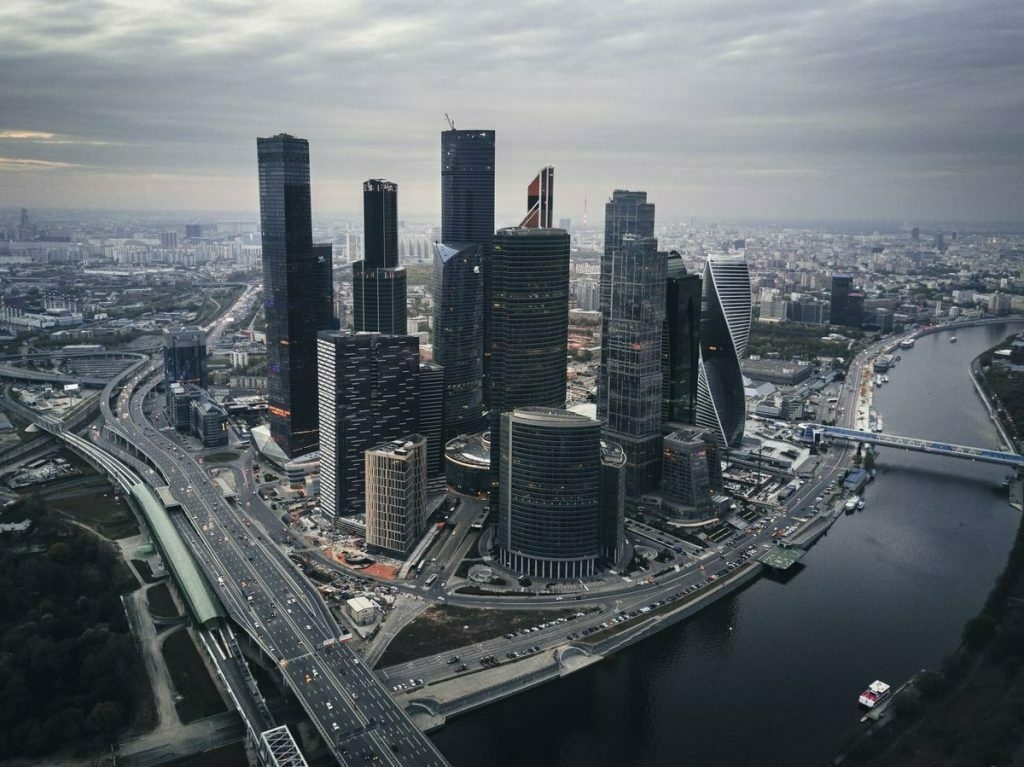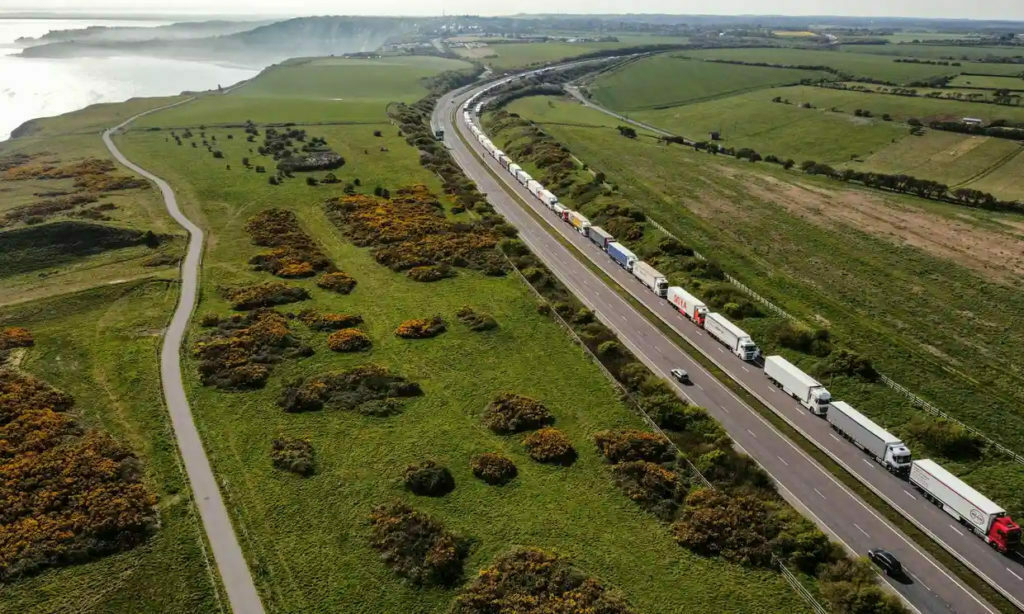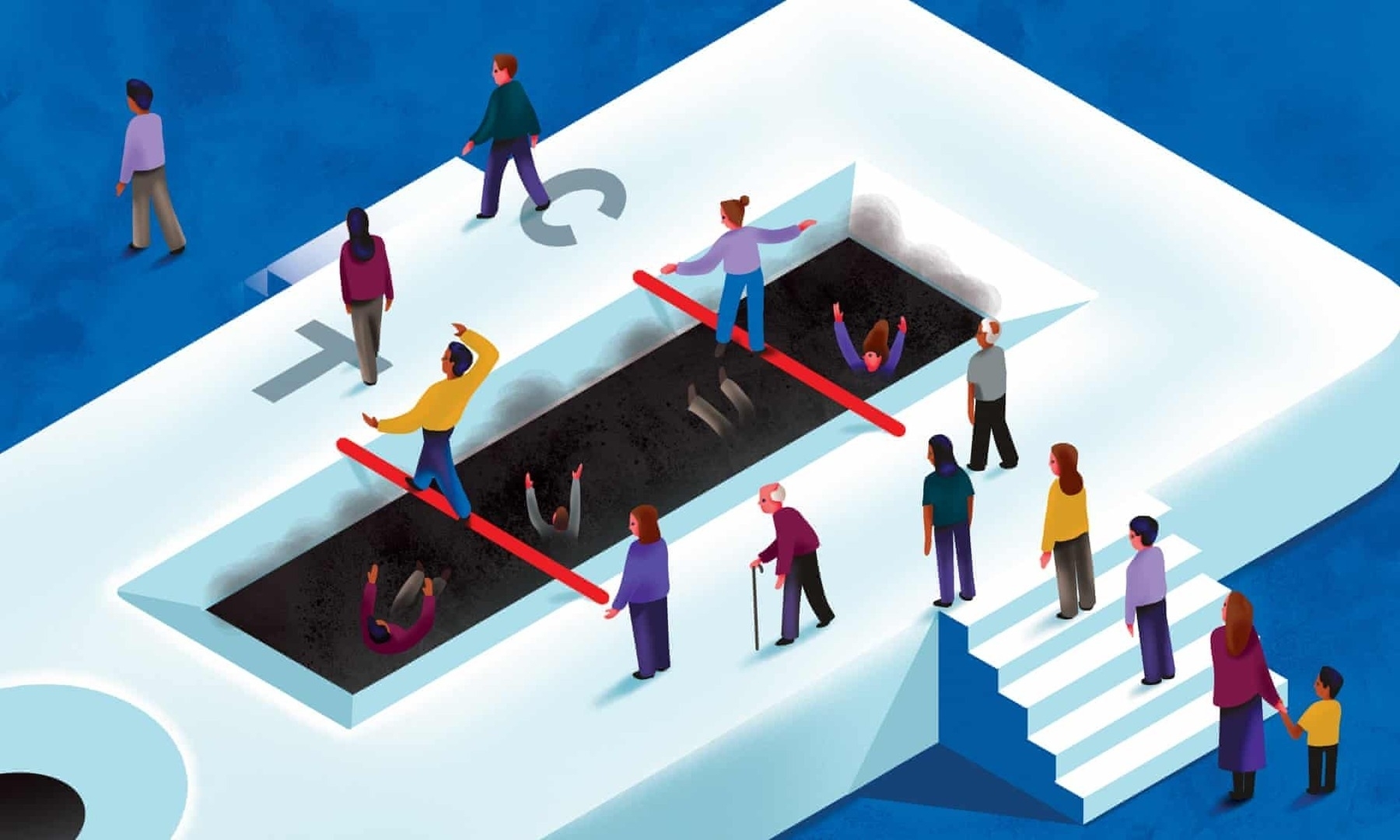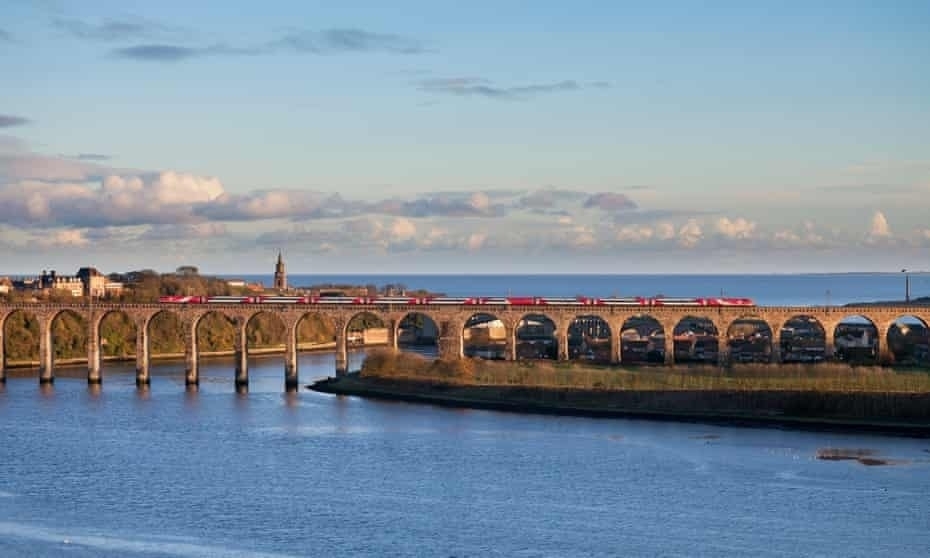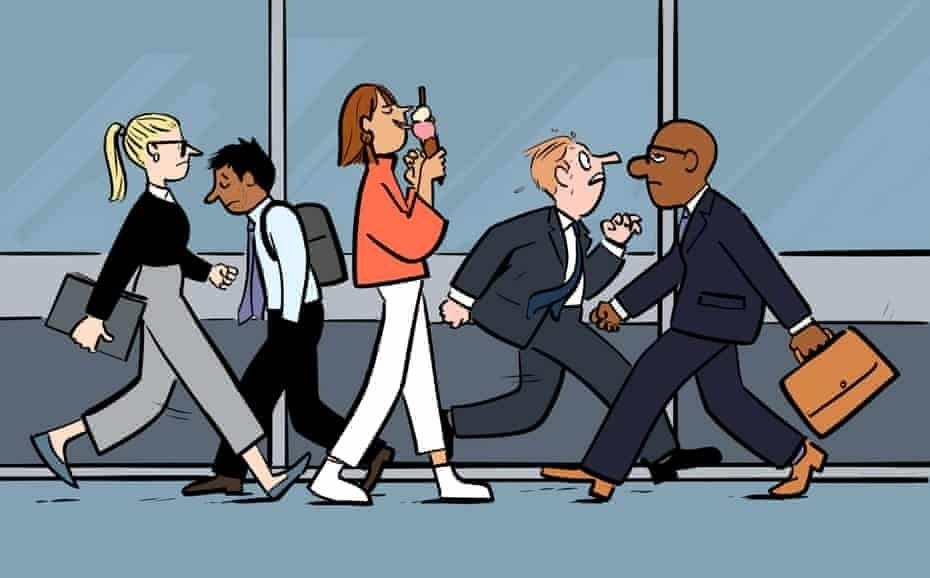Who wants to live forever?
I definitely feel the middle-aged white guy urge to focus on health, nutrition, etc. But I just felt really sorry when I watched the start of a video where Bryan Johnson, who sold his company to PayPal, goes through his routine. He just looks… lonely?
Photo below is of Jack Dorsey, former Twitter CEO, who also follows an ascetic lifestyle.
Who wants to live for ever? Not me, with all due respect to Freddie Mercury for asking, and possibly not you either. Only a third of Britons even want to make it to 100, according to a recent Ipsos poll carried out for the British not-for-profit initiative the Longevity Forum. This suggests less a death wish than a fear of what growing old may actually involve. Tellingly, the older the respondent already was, the less enthusiastic they were about getting very much older. Extreme age can look brutal, up close.Source: Who wants to live to 100 on a diet of lentil and broccoli slurry? Mostly rich men | The GuardianPersonally, I want very much to live until my child no longer needs me, whenever that may be, and to enjoy some kind of retirement. But beyond that, I just want to live until it feels like enough, and then ideally to have some control over the end. I’d rather have a busy, happy, meaningful life and drop dead at 75 than make it to 150 and run out of ways to fill the endless days.
Some tips for adding winter cheer
There are some excellent suggestions in this list of 53 things that can give you a lift over the winter months. I’ve highlighted three of my favourites below!
7. Walk with an audio book On a crisp winter’s day, there is no finer companion than 82-year-old actor Seán Barrett. His sublime narration of Mick Herron’s Slough House series, about a bunch of MI5 outcasts, will bring cheer to the gloomiest days.Source: Need a lift? Here’s 53 easy ways to add cheer to your life as winter looms | The Guardian[…]
18. Buy foods you can’t identify Purchase food in shops where the majority of products have no English on the packaging, so eating what you buy is an adventure. It might be black limes, a box of tamarinds or a rosewater drink with vermicelli pieces. It’s like travelling without travelling.
[…]
50. Sweat in a sauna We’ve all been told about the wellbeing boost of plunging into cold water, wild swimming and turning your shower down to freezing. But who wants to be cold? Book yourself into a sauna. Let the heat and steam soak deep into your bones and sweat out all your worries.
Hyperfinancialisation has taken over UK politics
I’m reading This Could Be Our Future by (Kickstarter co-founder) Yancey Strickler at the moment. It rails against hyperfinancialisation and then provides a way of thinking about the world differently.
As this opinion piece in The Guardian points out, we need a way of thinking about politics and the market which isn’t driven (literally!) by investment bankers.
Rishi Sunak’s first job was at the US investment bank Goldman Sachs. He went on to spend 14 years in the sector before becoming an MP. In many ways, his unelected appointment marks the highpoint of big finance’s takeover of Britain’s political and economic system – a quiet infiltration of Westminster and Whitehall has been taking place over several decades and gone largely unremarked.Source: With Rishi Sunak, the City’s takeover of British politics is complete | Aeron Davis[…]
Looking at the coalition government, every senior figure who managed Treasury economic policy – George Osborne, Danny Alexander, David Cameron, Rupert Harrison, John Kingman and Nick Macpherson – later gained well-paid positions in the financial sector. And three of the last five chancellors have come from the sector. Jeremy Hunt’s current advisers all come from investment banking.
This matters because investment bankers have very little to do with the real economy that ordinary people inhabit. They don’t run businesses. They don’t deal with actual product and customer markets. Their work is confined to financial markets, aiding corporate financial manoeuvres, and trading and managing their own financial assets. Their primary aim is to make profits from such activities, regardless of how it affects the real economy, the national interest or employees. If that means shorting the pound or breaking up a successful company for quick profits, then so be it.
[…]
And an overpowered financial sector has certainly not been conducive to good governance, either. There’s nothing democratic about extensive public service cuts being used to pay for saving the private banking sector, as in the aftermath of the 2008 crash, or the bond markets determining the credibility of governments, or the fact that the bankers and hedge funds are the biggest single source of Conservative party donations. Nor is trust in British democracy likely to be enhanced by a super-rich PM who has allegedly avoided taxes and made a fortune as a financier at the nation’s cost.
Counting the cost of Brexit
Another article about Brexit, after one last week. I think Brexit was a form of economic suicide, but over the weekend I’ve been thinking about the wider perspective.
Not only did we have a huge worldwide economic crash around 15 years ago, but everyone came online with their smartphones around the same time. So we’ve had a lot of revelations and a lot of resetting to do. Perhaps all of this is the tumultuous times before a new form of society?
One can only hope. Britain is going to be screwed no matter what, because we’re disconnected from our main trading and cultural partners.
Most of the trade deals with non-EU countries that the UK has signed have been small in their economic effect, and have merely been “rolled over” from identical ones when we were an EU member. Even Jacob Rees-Mogg, the minister for Brexit opportunities, has stopped talking about Brexit and the UK economy, and instead focuses on what he says is the democratic dividend, the winning back of control, and the return of sovereignty. That is not surprising because day by day the economic data is piling up showing the harm that leaving the EU is doing to the nation’s finances.Source: ‘What have we done?’: six years on, UK counts the cost of Brexit | The GuardianJohnson and the Vote Leave campaign promised in 2016 that £350m a month would flow back from Brussels because we would stop contributing to EU coffers.
The impression was that there would be no downside. We would thrive outside Europe’s bureaucracy which was strangling our companies with red tape. The huge benefits of the single market – trading freely across borders, with common standards – were never highlighted by Vote Leave, and rarely by the crudely alarmist Remain camp, either.
Only now, with the worst of the pandemic (probably) behind us, and ministers unable to blame Covid, is Brexit reality being laid bare.
Next year the OECD calculates that the UK will record the lowest growth in the G20 with the exception of Russia whose economy is being drained by its war on Ukraine.
The mesmerising murmurations of Europe’s starlings
Incredible. I highly recommend clicking through to watch the videos!
How the birds move together in such close proximity, as though one organism, is another mystery. One study found that each starling was responding instantly to the six or seven birds closest to it to maintain group cohesion.Source: ‘A fragment of eternity’: the mesmerising murmurations of Europe’s starlings | The Guardian
Epic UK walking trails
After walking Hadrian’s Wall (84 miles, 72 hours) a couple of months ago, I’m now seriously considering walking The Pennine Way (268 miles) next year. I reckon it might take a couple of weeks, as I absolutely beasted myself to do Hadrian’s Wall so quickly.
If you can’t spare a week to walk Britain’s mountain trails, coastal tracks and riverside paths, head for these expert-picked highlightsSource: The best of the UK’s most epic walking trails in 2-3 days | The Guardian
Epic UK walking trails
After walking Hadrian’s Wall (84 miles, 72 hours) a couple of months ago, I’m now seriously considering walking The Pennine Way (268 miles) next year. I reckon it might take a couple of weeks, as I absolutely beasted myself to do Hadrian’s Wall so quickly.
If you can’t spare a week to walk Britain’s mountain trails, coastal tracks and riverside paths, head for these expert-picked highlightsSource: The best of the UK’s most epic walking trails in 2-3 days | The Guardian
Dark patterns and gambling
Given that most gambling these days happens via smartphone apps, and that the psychological tricks used by gambling firms are also used by, for example, for-profit centralised social media sites, I found this fascinating (and worrying!)
Kim Lund, founder of poker game firm Aftermath Interactive, has made a career out of game design and has seen at first-hand how cold, hard probability defeats the illogical human mind every time – and allows the gambling companies to cash in. “All gambling games are based on psychological triggers that mean they work,” he tells me. “The human brain is incapable of dealing with randomness. We’re obsessed with finding patterns in things because that prevents us from going insane. We want to make sense of things.”Source: What gambling firms don’t want you to know – and how they keep you hooked | Thee Guardian[…]
In her 1975 paper The Illusion of Control, Ellen J Langer conducted a series of experiments that showed that our expectations of success in a game of chance vary, depending on factors that do not actually affect the outcome. One of the variables that makes a big difference to how gamblers behave is the introduction of an element of choice. In one of Langer’s experiments, subjects were given lottery tickets with an American football player on them. Some subjects got to choose which player they wanted, others were allocated a ticket at random. On the morning of the draw, everyone was asked how much they would be prepared to sell their ticket for. Those who had chosen their ticket demanded an average of $8.67, while those who had been allocated one at random were prepared to give it up for $1.96.
The burnout epidemic
I work an average of about 25 hours per week and I’m tired at the end of it. I can’t even imagine how I coped in my twenties while teaching.
Textile mill workers in Manchester, England, or Lowell, Massachusetts, two centuries ago worked for longer hours than the typical British or American worker today, and they did so in dangerous conditions. They were exhausted, but they did not have the 21st-century psychological condition we call burnout, because they did not believe their work was the path to self-actualization. The ideal that motivates us to work to the point of burnout is the promise that if you work hard, you will live a good life: not just a life of material comfort, but a life of social dignity, moral character and spiritual purpose.Source: Your work is not your god: welcome to the age of the burnout epidemic | The Guardian[…]
This promise, however, is mostly false. It’s what the philosopher Plato called a “noble lie”, a myth that justifies the fundamental arrangement of society. Plato taught that if people didn’t believe the lie, then society would fall into chaos. And one particular noble lie gets us to believe in the value of hard work. We labor for our bosses’ profit, but convince ourselves we’re attaining the highest good. We hope the job will deliver on its promise, and hope gets us to put in the extra hours, take on the extra project and live with the lack of a raise or the recognition we need.
Private schools having charitable status is an absolute scam
I’ve always been against private schooling. I’m glad that others, even those who went to them themselves, are also seeing how bad they are for society.
I hate the new trend of British private schools opening branches abroad because the reason, it seems to me, is naked and unreflecting expansionism. It’s not spreading the original institution’s educational values because, as the Times investigation shows, they’re all too ready to drop those values in order to continue to trade. The desire for revenue obviously plays a part but, as the institutions don’t make profits, I don’t think personal financial rewards for the various executive headteachers or boards of governors are a huge factor. It’s less intelligent than that. It comes from an ill-considered capitalistic urge for growth, nothing more thought through than bigger is better.Source: Expansionist private schools need a lesson in morality | David Mitchell | The GuardianThis is the same reason McDonald’s opened a branch in Soviet Moscow, but that was fine because, as far as I know, McDonald’s has never applied for charitable status. What is astonishing is how, by conducting themselves in this way, private schools seem to have given up on making a meaningful argument to retain that status themselves. They’ve just stopped caring about the views of the likes of me. Is the right wing of the Conservative party now so completely dominant that the idea of keeping the sympathy of anyone on the left or in the centre feels like a waste of time?
Jam tomorrow
The key to success traditionally has been to play the long game. If the system is rigged in your favour, that works. If it's not, then it's always "jam tomorrow".
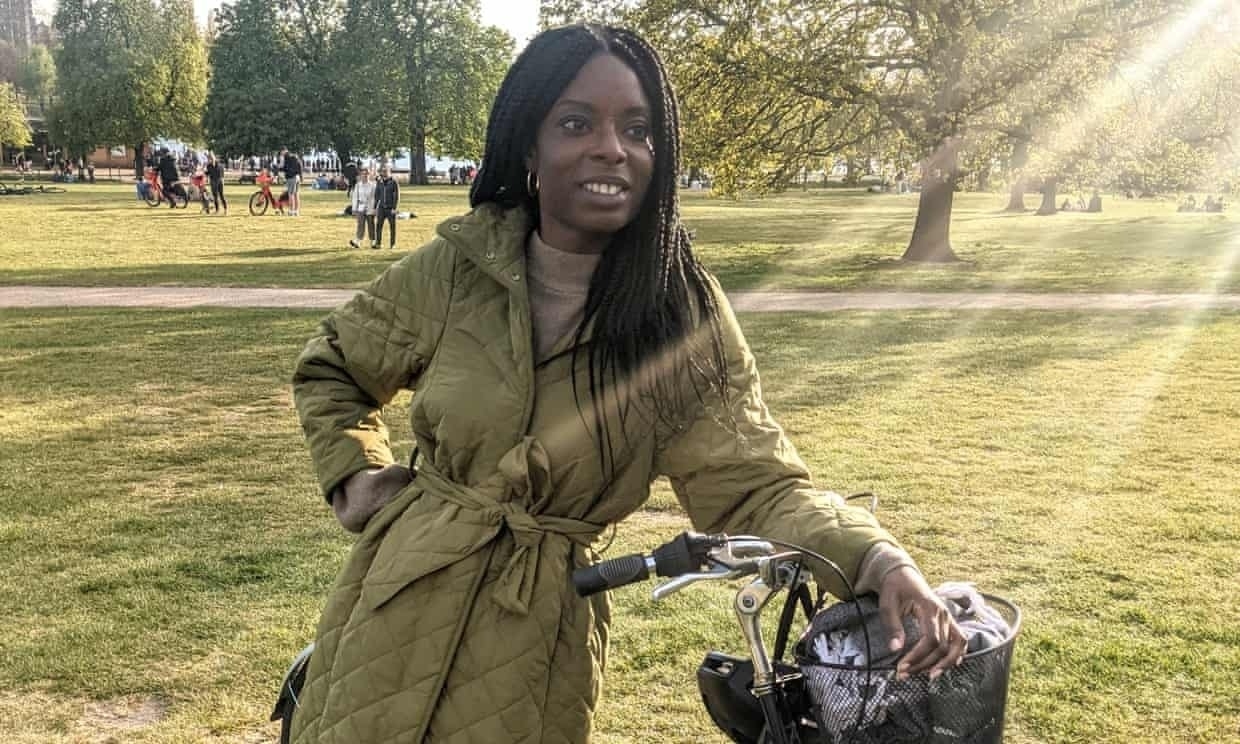
Where does the idea that we can achieve, or should even be aiming for, endless productivity come from? Arguably we’ve been barrelling towards this conclusion for as long as capitalism has existed, but the technological advances of the past few decades have further eroded the barriers around work that stop it seeping into every aspect of our lives. There is a widespread cultural fetishisation of productivity, with overwork framed as a virtue by employers desperate to find ways to motivate a workforce for whom the traditional rewards – a decent salary, pension, job security – often no longer apply.Source: This year, I stopped being productive. Why is it so hard to come to terms with that? | The Guardian
The impact of a plant-based diet on migraines
Aged 18, I was rejected at the last hurdle from the Royal Air Force for a scholarship which would have paid for my university tuition. The reason? I’d just started suffering from migraines.
There are lots of different types of triggers, but common to all types is stress. That’s not so good if you’re looking to be employed in Fighter Command.
In many ways, I dodged a bullet (literally and metaphorically!) by not joining the RAF, but migraines have been a constant struggle. In the past few years I’ve had a lot fewer of them, something I put down to reducing my stress levels and taking an L-Theanine supplement every day.
However, this article focuses on the benefits of a plant-based diet for migraine sufferers. I stopped eating meat in 2017 and then eliminated fish too, turning vegetarian in January of this year. It looks like that might have been a great idea not only from an animal welfare point of view, but in terms of my own welfare too!
Health experts are calling for more research into diet and migraines after doctors revealed a patient who had suffered severe and debilitating headaches for more than a decade completely eliminated them after adopting a plant-based diet.Source: Man’s severe migraines ‘completely eliminated’ on plant-based diet | Nutrition | The GuardianHe had tried prescribed medication, yoga and meditation, and cut out potential trigger foods in an effort to reduce the severity and frequency of his severe headaches – but nothing worked. The migraines made it almost impossible to perform his job, he said.
But within a month of starting a plant-based diet that included lots of dark-green leafy vegetables, his migraines disappeared. The man has not had a migraine in more than seven years, and cannot remember the last time he had a headache. The case was reported in the journal BMJ Case Reports.
Platform power and infrastructure
John Naughton writes notes that we need to describe a fourth kind of power alongside compelling us to do something, stopping us from doing something, or shaping the way we think.
The great unsolved problem of our time is how to deal with – and where necessary curb – the unaccountable power of these giants. The first step on that road is to reach a collective understanding of what kind of power they actually wield. And for that we need a taxonomy. In an earlier era, the political theorist Steven Lukes proposed one. There were, he said, three kinds of power: the ability to compel people to do what they don’t want to do, the ability to stop them doing something they want to do and the ability to shape the way they think. This last one was useful in addressing the power of influential media owners (Rupert Murdoch, for example) in the old media ecosystem. But although it still applies in some ways to social media, it’s less useful for the networked ecosystem we now inhabit; we need another category.Source: How can we tame the tech giants now that they control society’s infrastructure? | The Guardian“Platform power” is one possibility. The tech giants all possess it to a greater or lesser degree. In Apple’s case, for example, it owns and controls two important platforms – ie, software systems on which other agents can build businesses: they are the operating systems on which its devices run and its app store, which decides what apps are allowed on Apple devices. Google owns several platforms – a search engine and its associated advertising marketplace, the Android mobile operating system, YouTube and Google cloud services. Facebook (whose holding company is now rebranded as Meta) also owns several – Facebook, Instagram and WhatsApp; Twitter owns, er, Twitter; Amazon owns its marketplace and cloud services; and Microsoft owns the Windows/Office platform and a fast-growing cloud service, Azure.
Retro football gaming FTW
The amount of nostalgia that this article gave me was incredible. I have spent more time with the Championship Manager series of games (now Football Manager) than any game. Even FIFA.
Perhaps because it was a formative period in my life, but Championship Manager 93 and Championship Manager Italia were perhaps may favourite. I can remember playing one of them on the bus to a football tournament in Blackpool on my Dad’s laptop (with a monochrome screen!)
Theoretically, you can play these games via archive.org. But the links weren’t working for me when I tried them…
And then there was Championship Manager. The king of them all. It’s hard to explain why. It took 10 minutes to get through the classified results each week. There were about three tactics you could adopt. There was no training. But somehow it just worked. That old man on the cover pretending to be a manager pointing at you in his sheepskin coat.Source: No passing, no training, seven discs: the joys of 90s football gaming | The Guardian[…]
I recently downloaded Championship Manager 93 on my laptop. It runs slightly more quickly on a Mac. I took Cambridge United to the top of the Premier League. A front line of Darrell Powell, Dominic Iorfa and Nick Barmby were unstoppable.
Climate optimism
COP26 has started, and it’s easy to be cynical and defeatist about the whole thing. But this article in The Guardian offers some glimmers of hope, somewhat in the vein of the excellent Future Crunch newsletter.
The real fuel for the green transition is a combination of those most valuable and intangible of commodities: political will and skill. The supply is being increased by demands for action from youth strikers to chief executives, and must be used to face down powerful vested interests, such as the fossil fuel, aviation and cattle industries. The race for a sustainable, low-carbon future is on, and the upcoming Cop26 climate talks in Glasgow will show how much faster we need to go.Source: Reasons to be hopeful: the climate solutions available now | Climate crisis | The Guardian
Walking the Covid tightrope
I’m sharing this article mainly for the genius of the accompanying illustration, although it also does a good job of trying to explain an increasing feeling of English exceptionalism.
The results look increasingly alarming. In pubs, in shops, on public transport and in other enclosed spaces where the virus easily spreads, many people are acting as if the pandemic is over – or at least, over for them. Mask-wearing and social distancing have sometimes become so rare that to practise them feels embarrassing.Source: With Covid infections rising, the Tories are conducting a deadly social experiment | The GuardianMeanwhile, England has become one of the worst places for infections in the world, despite a high degree of vaccination by global standards. Case numbers, hospitalisations and deaths are all rising, and are already much higher than in other western European countries that have kept measures such as indoor mask-wearing compulsory, and where compliance with such rules has remained strong. What does England’s failure to control the virus through “personal responsibility” say about our society?
It’s tempting to start by generalising about national character, and how the supposed individualism of the English has become selfishness after half a century of frequent rightwing government and fragmentation in our lives and culture. There may be some truth in that. But national character is not a very solid concept, weakened by all the differences within countries and all the similarities that span continents. Thanks to globalisation, all European societies have been affected by the same atomising forces. England’s lack of altruism during the pandemic can’t just be blamed on neoliberalism.
Other elements of our recent history may also explain it. England likes to think of itself as a stable country, yet since the 2008 financial crisis it has endured a more protracted period of economic, social and political turmoil than most European countries. The desire to return to some kind of normality may be especially strong here; taking proper anti-Covid precautions would be an acknowledgement that we cannot do that.
Reducing long-distance travel
I agree with what Simon Jenkins is saying here about focusing on the ‘reduce’ part of sustainable travel. However, it does sound a bit like victim-blaming to say that people outside of London travel mainly by car.
We travel primarily by car because of the lack of other options. Infrastructure is important, including outside of our capital city.
It is an uncomfortable fact that most people outside London do most of their motorised travel by car. The answer to CO2 emissions is not to shift passengers from one mode of transport to another. It is to attack demand head on by discouraging casual hyper-mobility. The external cost of such mobility to society and the climate is the real challenge. It cannot make sense to predict demand for transport and then supply its delivery. We must slowly move towards limiting it.Source: Train or plane? The climate crisis is forcing us to rethink all long-distance travel | The GuardianOne constructive outcome of the Covid pandemic has been to radically revise the concept of a “journey to work”. Current predictions are that “hybrid” home-working may rise by as much as 20%, with consequent cuts in commuting travel. Rail use this month remains stubbornly at just 65% of its pre-lockdown level. Office blocks in city centres are still half-empty. Covid plus the digital revolution have at last liberated the rigid geography of labour.
Climate-sensitive transport policy should capitalise on this change. It should not pander to distance travel in any mode but discourage it. Fuel taxes are good. Road pricing is good. So are home-working, Zoom-meeting (however ghastly for some), staycationing, local high-street shopping, protecting local amenities and guarding all forms of communal activity.
Time millionaires
Same idea, new name: there’s nothing new about the idea of prioritising the amount of time and agency you have over the amount of money you make.
It’s just that, after the pandemic, more people have realised that chasing money is a fool’s errand. So, whatever you call it, putting your own wellbeing before the treadmill of work and career is always a smart move.
First named by the writer Nilanjana Roy in a 2016 column in the Financial Times, time millionaires measure their worth not in terms of financial capital, but according to the seconds, minutes and hours they claw back from employment for leisure and recreation. “Wealth can bring comfort and security in its wake,” says Roy. “But I wish we were taught to place as high a value on our time as we do on our bank accounts – because how you spend your hours and your days is how you spend your life.”Source: Time millionaires: meet the people pursuing the pleasure of leisure | The GuardianAnd the pandemic has created a new cohort of time millionaires. The UK and the US are currently in the grip of a workforce crisis. One recent survey found that more than 56% of unemployed people were not actively looking for a new job. Data from the Office for National Statistics shows that many people are not returning to their pre-pandemic jobs, or if they are, they are requesting to work from home, clawing back all those hours previously lost to commuting.
Subsidising trains via a tax on internal flights?
My wife flew down to a work meetup (and to see her family) last week. She got the train back. The flight was about £40, and the train about five times that.
At around seven hours, that journey would have been exempt from these plans, but it’s illustrative of how passengers are currently economically encouraged to destroy the environment.
The Campaign for Better Transport (CBT) called on ministers to outlaw internal UK flights if an equivalent train journey took less than five hours and to resist calls for any cut in air passenger duty.Source: Ban UK domestic flights and subsidise rail travel, urges transport charity | The GuardianMandatory emissions labels on tickets and a frequent flyer levy should also be introduced, the charity said.
The demands came before the 27 October budget, in which the chancellor, Rishi Sunak, may decide to cut taxes on domestic flights in response to pressure from the aviation industry, a possibility mooted by the prime minister earlier this year. Such a move could, however, prove an embarrassment a week before the UK hosts the Cop26 climate conference in Glasgow.
[…]
Paul Tuohy, the chief executive of CBT said: “Cheap domestic flights might seem a good deal when you buy them, but they are a climate disaster, generating seven times more harmful greenhouse emissions than the equivalent train journey.
“Making the train cheaper will boost passenger numbers and help reduce emissions from aviation, but any cut to air passenger duty – coupled with a rise in rail fares in January – will send the wrong message about how the government wants people to travel and mean more people choosing to fly.”
Subsidising trains via a tax on internal flights?
My wife flew down to a work meetup (and to see her family) last week. She got the train back. The flight was about £40, and the train about five times that.
At around seven hours, that journey would have been exempt from these plans, but it’s illustrative of how passengers are currently economically encouraged to destroy the environment.
The Campaign for Better Transport (CBT) called on ministers to outlaw internal UK flights if an equivalent train journey took less than five hours and to resist calls for any cut in air passenger duty.Source: Ban UK domestic flights and subsidise rail travel, urges transport charity | The GuardianMandatory emissions labels on tickets and a frequent flyer levy should also be introduced, the charity said.
The demands came before the 27 October budget, in which the chancellor, Rishi Sunak, may decide to cut taxes on domestic flights in response to pressure from the aviation industry, a possibility mooted by the prime minister earlier this year. Such a move could, however, prove an embarrassment a week before the UK hosts the Cop26 climate conference in Glasgow.
[…]
Paul Tuohy, the chief executive of CBT said: “Cheap domestic flights might seem a good deal when you buy them, but they are a climate disaster, generating seven times more harmful greenhouse emissions than the equivalent train journey.
“Making the train cheaper will boost passenger numbers and help reduce emissions from aviation, but any cut to air passenger duty – coupled with a rise in rail fares in January – will send the wrong message about how the government wants people to travel and mean more people choosing to fly.”


